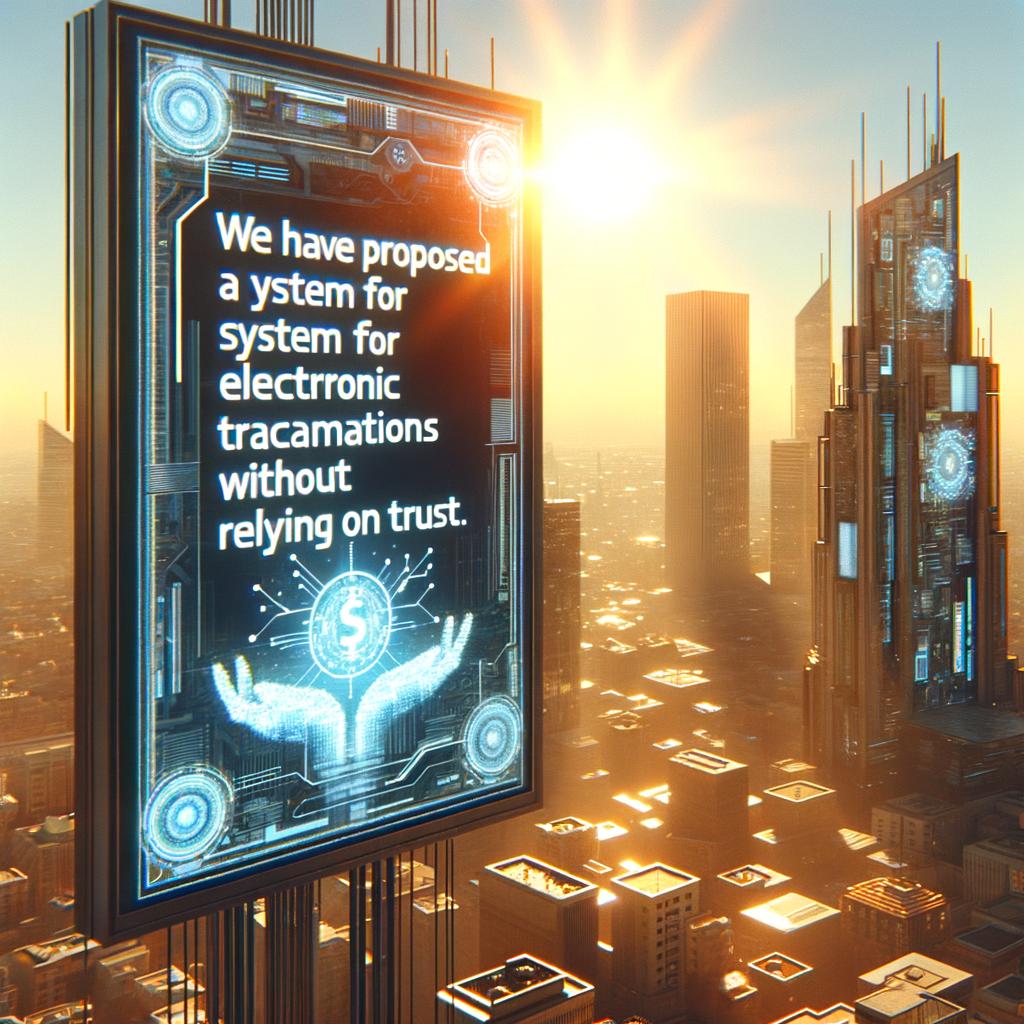Satoshi’s Quote: Proof-of-work is essentially one-CPU-one-vote
Table of contents
Satoshi Nakamoto’s words resonate deeply within the cryptocurrency community, particularly in discussions about decentralized systems and the mechanics of blockchain technology. The phrase “Proof-of-work is essentially one-CPU-one-vote” encapsulates a fundamental principle of how Bitcoin and many other cryptocurrencies operate. This concept not only highlights the importance of computational power in validating transactions but also signifies the democratic nature of blockchain technology. As we explore this quote, we’ll uncover the implications of proof-of-work, its role in maintaining network security, and its influence on the broader landscape of digital currencies.
Understanding Proof-of-Work
Proof-of-work (PoW) is a consensus mechanism used to secure blockchain networks. In essence, it requires participants, often called miners, to solve complex mathematical problems to validate transactions and add new blocks to the blockchain. This process consumes computational resources, primarily CPU power, which is where the idea of “one-CPU-one-vote” comes into play. Each computational effort contributes to the network’s security and integrity, reinforcing the notion that participation is directly tied to the computational resources one can provide.
The Democratic Nature of Blockchain
The phrase “one-CPU-one-vote” signifies a level playing field in the mining process. In an ideal scenario, each participant has an equal opportunity to contribute to the network’s security and governance based on their computational power. This democratization is a stark contrast to traditional financial systems, where power dynamics often favor centralized entities. By allowing all miners to compete on equal footing, Bitcoin and similar cryptocurrencies foster a more inclusive environment for financial transactions, where no single entity can exert undue control over the network.
The Role of Miners in Network Security
Miners play a crucial role in the blockchain ecosystem. By investing in computational resources, they help validate transactions, prevent double-spending, and maintain the overall integrity of the blockchain. The competitive nature of PoW means that miners must continually upgrade their hardware to remain effective, which contributes to the ongoing decentralization of the network. As more miners join, the network becomes more secure, making it increasingly difficult for any one party to manipulate the system.
Challenges of Proof-of-Work
While the concept of “one-CPU-one-vote” promotes decentralization, proof-of-work is not without its challenges. The significant energy consumption associated with mining has drawn criticism from various environmental organizations and policymakers. As the network grows, the computational power required to secure it increases, leading to higher energy costs and a larger carbon footprint. This has sparked debates within the cryptocurrency community about the sustainability of PoW and the potential need for alternative consensus mechanisms, such as proof-of-stake (PoS).
Alternative Consensus Mechanisms
The discussions surrounding the efficacy and sustainability of proof-of-work have led to the exploration of alternative consensus mechanisms. Proof-of-stake, for example, offers a different approach by allowing participants to validate transactions based on the number of coins they hold and are willing to “stake” as collateral. This method significantly reduces energy consumption and can provide a more scalable solution for blockchain networks. However, the trade-offs between security, decentralization, and energy efficiency continue to be hotly debated among developers and users alike.
The Future of Proof-of-Work
Despite the challenges associated with proof-of-work, it remains a foundational element of many cryptocurrencies, including Bitcoin. The principle of “one-CPU-one-vote” continues to resonate, emphasizing the importance of decentralization and community participation in the digital currency ecosystem. As technology evolves, the dialogue around the sustainability of PoW will likely persist, leading to innovations that balance energy efficiency with network security.
Conclusion
Satoshi Nakamoto’s assertion that “Proof-of-work is essentially one-CPU-one-vote” offers a profound insight into the mechanics of blockchain technology. By promoting a decentralized and democratic approach to transaction validation, proof-of-work has played a pivotal role in shaping the future of digital currencies. As the industry navigates the challenges of energy consumption and seeks to innovate, the core principles behind this consensus mechanism will continue to influence the development of secure and equitable financial systems. Understanding this quote and its implications is vital for anyone interested in the future of cryptocurrency and the evolution of decentralized technologies.







